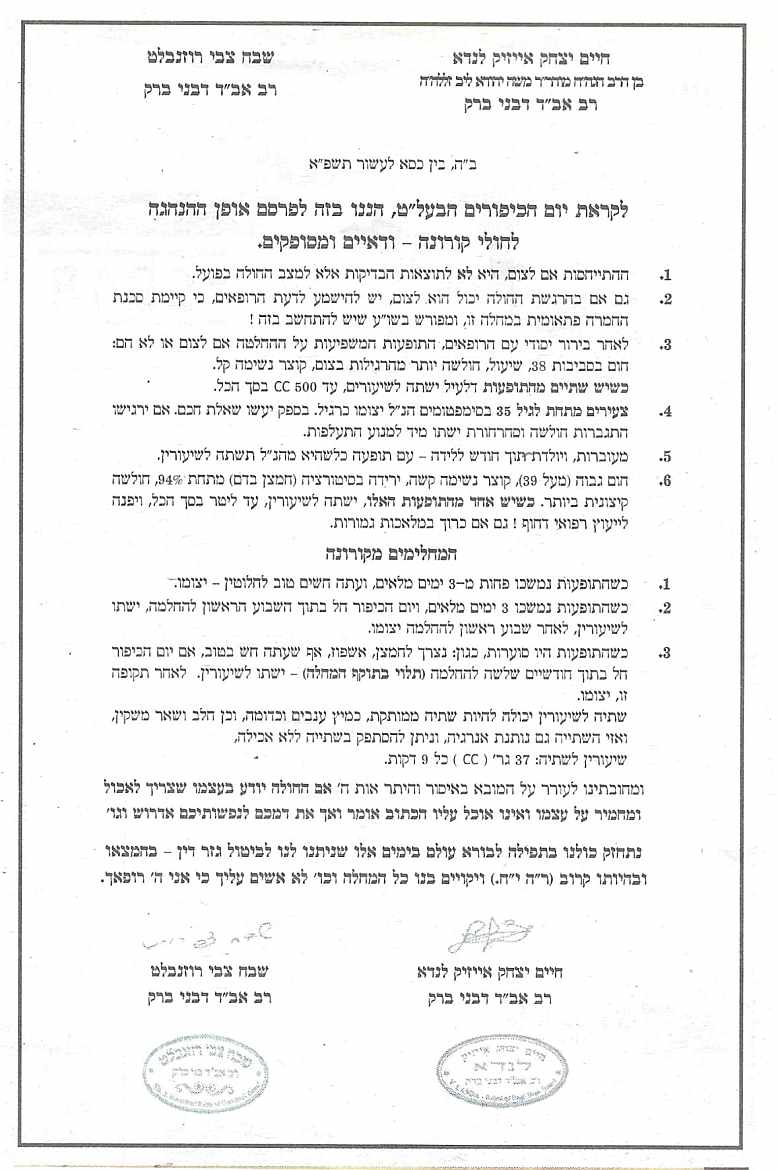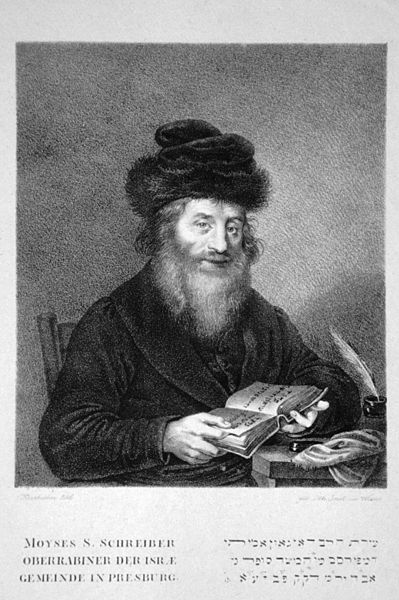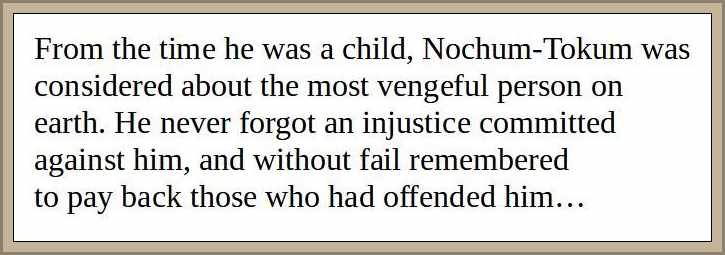  |
|
| |||||||||
Note also that the archival material from the 5763 Succos edition is, in our opinion, of very high quality. The large holiday editions usually were special. Also note that the next scheduled issue is the week of parshas Bereishis.
This Google Custom Search looks only in this website. "With the Hands of Humans Under Their Wings"
A sin is not an isolated act but represents the intent and will to sin and it encompasses the man. Thus, under normal conditions, one would not be able to extricate oneself from the spiritual decline. Chazal related to this and said: "What shall the sinner do? Prophecy and wisdom were asked this question and could find no answer for the sinner. Only Hakodosh Boruch Hu Himself said: Let him repent and he will be redeemed."
As it is brought, the foundation of the fall of sin is to be found already at the creation of man. The world was created through the letter `hei,' but a special creation was required to incorporate teshuva into the world itself.
Spiritual salvation is greater than all other salvations. This deliverance actually exists by us and it enables every single individual Jew to merit purification before Hashem. The Rosh Yeshiva of Chevron, HaRav Yechezkel Sarna, quoted: Fortunate are you, Yisroel. Who purifies you? Your Father in Heaven.
There is a difference between salvation and redemption of a worldly kind and a spiritual one. Every kind of the former can come about as a gift, gratis, through the merciful kindness of Hashem as incorporated in the world which was created through chessed. Olam chessed yiboneh.
We decorate our succas with pictures of gedolei Yisroel: Are they accurate representations of the people they purport to represent?
This is one of R' Chaim Walder's classic stories that was published in our print edition more than 20 years ago. It has aged well.
From Our Archives
Using Jokes in Education
by R' Zvi Zobin
With a subject as provocative as this one, I must first make some important disclaimers.
1. This article is not intended to be a collection of Jewish jokes.
2. Neither is this going to be an article on the psychology of jokes.
3. I do not intend to suggest that a cheider rebbe learn to be like a professional comedian or that a shiur be like a rollicking comedy show.
The obligation to "serve Hashem with joy" requires that the joy emanate from an appreciation of the value of the work being done. Nodov and Avihu, the two sons of Aharon, were consumed by heavenly fire because they offered up an unacceptable sacrifice. My first Rosh Yeshiva, Rabbi Nosson Ordman z'l, explained that before offering the sacrifice, they first imbibed some alcoholic drink. Their joy came from the drink; therefore, it was rejected. Wine can be used with discretion to enable a person to attain a suitable state of mind. Its potency can be used to help a person relax and thereby to enable him to appreciate the true fortune of his situation. However, it is only a means and therefore should be used with discretion.
Similarly, humor has its place in the instrument-case of the educator. Used well, a joke can be a powerful tool:
Ga'avoh and the Relative Standard
Based on shiurim by Rabbi Dovid Siegel
Did you ever find yourself sitting on a park bench or a bus, minding your own business, and your thoughts suddenly began drifting: Who is this person sitting next to me? Look at that. He has such a small kippa. Her bangs are peeking out of her hair covering. He/she is nowhere near as important as I. I am far more religious and worthy than he/she.
Of course, this internal soliloquy stems from that ever- present problem of ga'avoh.
But why did my mind so naturally drift this way? The unfortunate answer is because of my constant need to elevate myself, which can be accomplished in two ways: either by dwelling on my own importance or by pushing another person down. If the person next to me is lacking, then I am, by implication, superior.
Unfortunately, we have a tendency to instantaneously size others up and compare ourselves to them. But if we take a few minutes to analyze the accuracy of our comparisons, we may increase our ahavas Yisroel and decrease our feelings of pride.
Upon examination we will discover several fallacies in our quick judgment calls. First, let's deal with the issue of "better." I'm better than. Let's stop and think about how Hashem views this.
The Last Minute - a Holocaust Story
by Rabbi M. D. Weinstock
To paraphrase part of the Foreword by Emile Marmorstein, the following is an account of a spiritual adventure through which our faith can derive strength and our resolve to draw nearer to our Creator through the meticulous performance of His orders can be strengthened. The Hashgochoh and simple human heroism are inspiring.
Rabbi Shapira, zt"l, referred to in the story, was known to many as the Bluzhover Rebbe, when he lived in Boro Park.
Once every month Pinchas Kohn of Pittsburgh pays a visit to the Rabbi of Prachnik, grandson of the famous Rabbi of Bluzhov. Rabbi Shapira of Prachnik is today one of the leading figures among the religious Jews of Brooklyn. His followers regard him as the spiritual heir of the famous Rabbis of the great dynasty of Dinov, and when they are near him, they relive in their memories the wonderful times when they had flourished, when those almost superhuman beings -- Rabbi Zvi Elimelech, the rabbi of Dinov and author of Bnei Yisoschor with its kabbalistic depth, and the rabbi of Bluzhov -- had attracted veritable processions of people wherever they went.
Only a miracle had saved the Rabbi of Prachnik from sharing the martyrdom of his brethren at the very outset of the terrible tragedy that befell the Jewish people of Poland. Tens of thousands moved forward on the road to death, and among them was Rabbi Shapira, his wife and his highly-gifted only daughter. They marched in silence, uncomplaining, certain that they would never return the same way.
Seeking Permanent Simchah
By Mordecai Plaut
Thanks to the wealth which Hashem has showered upon us in recent generations, many of us enjoy temporary succahs that are nicer and more comfortable than the permanent housing of generations past. This is altogether appropriate. The charge to leave our permanent dwellings for temporary accommodations on Succos is not to make us suffer in primitive conditions, but to learn from the experience. We should try to make our fulfillment of this mitzvah as pleasant and as elevating as possible, and investing in decoration and conveniences of the succah is a well-known way of doing this. It enhances the immediate goal of the mitzvah, which is simchah on Succos.
The most obvious lesson to be learned is that we do not need our usual surroundings in order to achieve simchah -- and this is an important lesson indeed, especially in this age of information overload. Bombarded as we all are with information, we are often unduly influenced by the wrong things. The whole year round our moods are strongly influenced by the media; on Succos we are actually commanded to seek higher sources.
From The Vilna Gaon's Beis Hamedrash: Some Lesser Known Stories About Two Of The Gaon's Most Famous Talmidim
By Rabbi Dov Eliach
New material about the Vilna Gaon ztvk'l, and his disciples is always of interest -- there is no need to wait for a round numbered anniversary or, for that matter, for any anniversary at all. Nonetheless, the Succos issue, coinciding with the Gaon's yahrzeit on the nineteenth of Tishrei, is a particularly suitable setting for such a presentation. (Incidentally, this year is the Gaon's two hundred and fifth yahrzeit [5558-5763, 1797-2002]).
This article contains several newly-discovered stories and anecdotes about two of the Gaon's most famous talmidim. The incidents involving the Dubno Maggid and some of those involving Rav Chaim of Volozhin zt'l are drawn from previously unpublished manuscripts.
In the Merit of Tzedokoh
This story of how Rav Yosef Sharshover zt'l, a son of Rav Chaim of Volozhin, was spared from murder at the hands of a band of thieves, was related by one of the talmidim of the Volozhin yeshiva:
Decorating the Succa - based on a true story
by Rifca Goldberg
Surah Leah looked in the mirror -- and she didn't like what she saw. These braces ruined everything! They were needed to straighten her teeth, yes. They would help correct her bite, she knew. But still... tears sprang to her eyes. It wasn't easy. It really wasn't.
*
Shmuel was twelve years old. And an independent twelve- year- old at that! Being the third child of four and the only boy, this year, he decided, things were about to be `different.'
|
|||||||||




.jpg)





